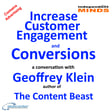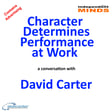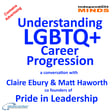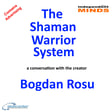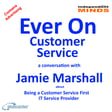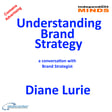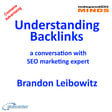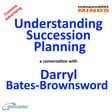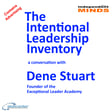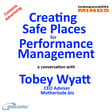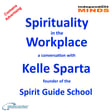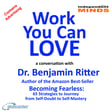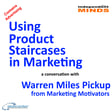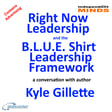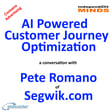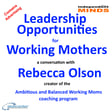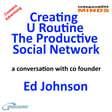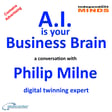
Using AI in Innovation – a conversation with Sam Zellner
As someone who has contributed to over 200 patents Sam Zellner is undoubtedly an innovator.
Sam is the founder and CEO of Inspire IP, a SaaS platform that helps corporations build and sustain innovation ecosystems. He serves on the USIPA board, is one of IAM's Top 300 IP Strategists. and is regarded as a leader in innovation.
In this episode of the Abeceder podcast The Independent Minds, Sam explains to host Michael Millward how AI can contribute to the innovation process, the advantages for organisations and people of using AI for innovative problem solving.
Sam also explains how to utilise AI to achieve the best results and organisations may need to change approaches to management and communications in order to achieve those best results.
Find out more about both Michael Millward, and Sam Zellner at Abeceder.co.uk
The Independent Minds is made on Zencastr, because as the all-in-one podcasting platform, on which you can create your podcast in one place and then distribute it to the major platforms, Zencastr really does make creating content so easy.
If you would like to try podcasting using Zencastr visit zencastr.com/pricing and use our offer code ABECEDER.
Travel
Same is based in Atlanta Georgia, USA. Members of the Ultimate Travel Club, can travel to Atlanta, and anywhere else at trade prices on flights, hotels, trains, package holidays and all sorts of other travel purchases. You can become a member at a discounted price by using my offer code ABEC79 when you join-up.
Fit For Work Look after your health and you will be fit for work.
It is always a good idea to know the risks early so that you can take appropriate actions to maintain good health, that is why we recommend The Annual Health Test from York Test.
York Test provides an Annual Health Test. An experienced phlebotomist will complete a full blood draw at your home or workplace. Hospital standard tests covering 39 different health markers are carried out in a UKAS-accredited and CQC-compliant laboratory.
A Personal Wellness Hub gives access your easy-to-understand results and guidance to help you make effective lifestyle changes anytime via your secure, personal Wellness Hub account.
Visit York Test and use this discount code MIND25.
Three the network Visit Three for information about business and personal telecom solutions from Three, and the special offers available when you quote my referral code WPFNUQHU.
Being a Guest
If you would like to be a guest on The Independent Minds, please contact using the link at Abeceder.co.uk.
We recommend that potential guests take one of the podcasting guest training programmes available from Work Place Learning Centre.
We use Matchmaker.fmto connect with potential guests If you are a podcaster looking for interesting guests or if you have something interesting to say Matchmaker.fm is where matches of great hosts and great guests are made. Use our offer code MILW10 for a discount on membership.
We appreciate every like, download, and subscriber.
Thank you for listening.
